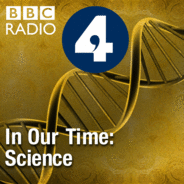
Wissenschaft & Technik
In Our Time: Science Folgen
Scientific principles, theory, and the role of key figures in the advancement of science.
Folgen von In Our Time: Science
phonostar hat keine Informationen zu diesem Inhalt.
Gehe auf die Website des Senders um weitere Informationen zu erhalten.